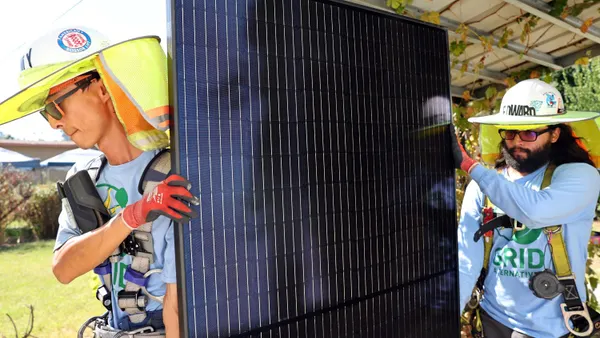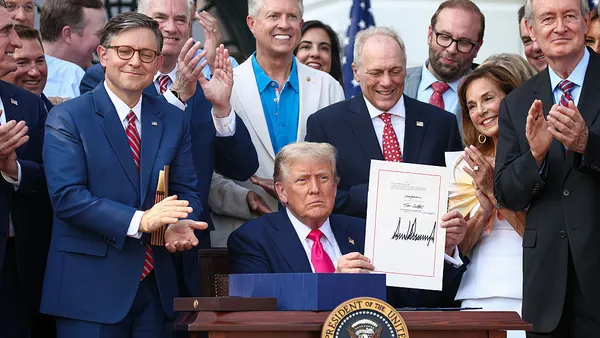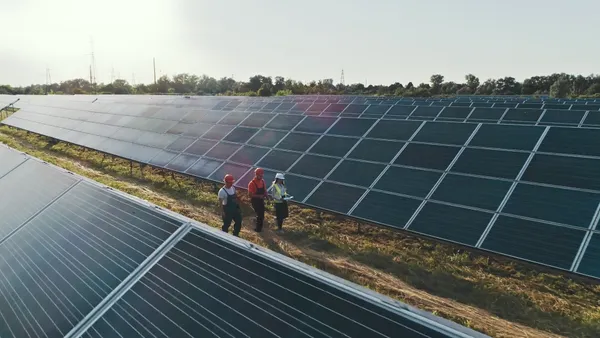Dive Brief:
- A final decision from the Commerce Department concluded Chinese and Taiwanese module and cell manufacturers benefit from unfair subsidies from their governments and puts a significant tariff on solar modules and cells imported from those countries, the New York Times reports.
- The Commerce ruling closed a loophole on a 2012 tariff by including Taiwanese cells along with Chinese modules. Modules are composed of multiple cells. Chinese module makers had been skirting the tariff by using Taiwanese cells.
- Commerce placed anti-dumping duties of 26.7% to 78.4% and anti-subsidy duties of 27.6% to 49.8% on imported Chinese solar modules. It also imposed anti-dumping duties of 11.5% to 27.6% on Taiwanese solar cells.
Dive Insight:
SolarWorld Americas brought a complaint in 2011, when the recession and an international oversupply of modules was forcing consolidation among manufacturers. Some estimates suggest 50% to 90% of module makers failed before the consolidation slowed.
The Chinese government provided subsidies for module manufacturers to protect its economy. The module makers flooded the international market with low-priced product. That threatened the economic viability of companies like Germany-based SolarWorld and its U.S. subsidiary.
The Coalition for Affordable Solar Energy has long opposed the tariffs because they put upward pressure on the installed price of solar and slow the growth of the industry. Tariffs will also, according to SunEdison’s Jigar Shah, be an impediment to Chinese-U.S. cooperation on climate change.
Many solar advocates say the low-priced modules drove the unprecedented growth enjoyed by the solar industry. Non-Chinese survivors of the trade wars have tended to be vertically integrated companies like SunPower, First Solar, and SolarCity that can make up for losses in one sector with gains in another.
Manufacturing is expected to move to Malaysia and other Asian countries with low costs and skilled labor.












